How Often Do Murfreesboro Water Heaters Need to be Replaced?
Water heater maintenance is often neglected by homeowners until they experience a sudden loss of hot water. However, it is crucial to properly care for your water heater to avoid inconvenient and potentially hazardous situations. Our expert plumber, specializing in water heater repair and replacement, has prepared this guide to help you identify the signs that indicate the need for a replacement. Additionally, we will discuss important factors to consider when purchasing a new water heater. By following our tips, you can ensure a consistent supply of hot water for your family's needs. Learn how often water heaters need to be replaced.

What is the lifespan of water heaters?
If you're wondering about the lifespan of a water heater, you'll be glad to know that they generally last for a decent amount of time. On average, a well-maintained water heater can last anywhere from 8 to 12 years. Of course, this lifespan can vary depending on factors such as the quality of the unit, regular maintenance, and even the water quality in your area.
Tankless water heaters offer a superior lifespan in comparison to traditional units.
Proper installation and regular maintenance are essential in ensuring the longevity of a water heater. Failing to adhere to these important steps can significantly reduce its lifespan.
To ensure optimal performance and extend the life of your water heater, it is crucial to prioritize consistent maintenance and regular inspections. By regularly maintaining and inspecting your water heater, you can significantly improve its efficiency and longevity..
It's important to note that using your unit excessively on a daily basis and having high levels of hard water can significantly speed up the wear and tear process, which can ultimately compromise its long-term effectiveness.

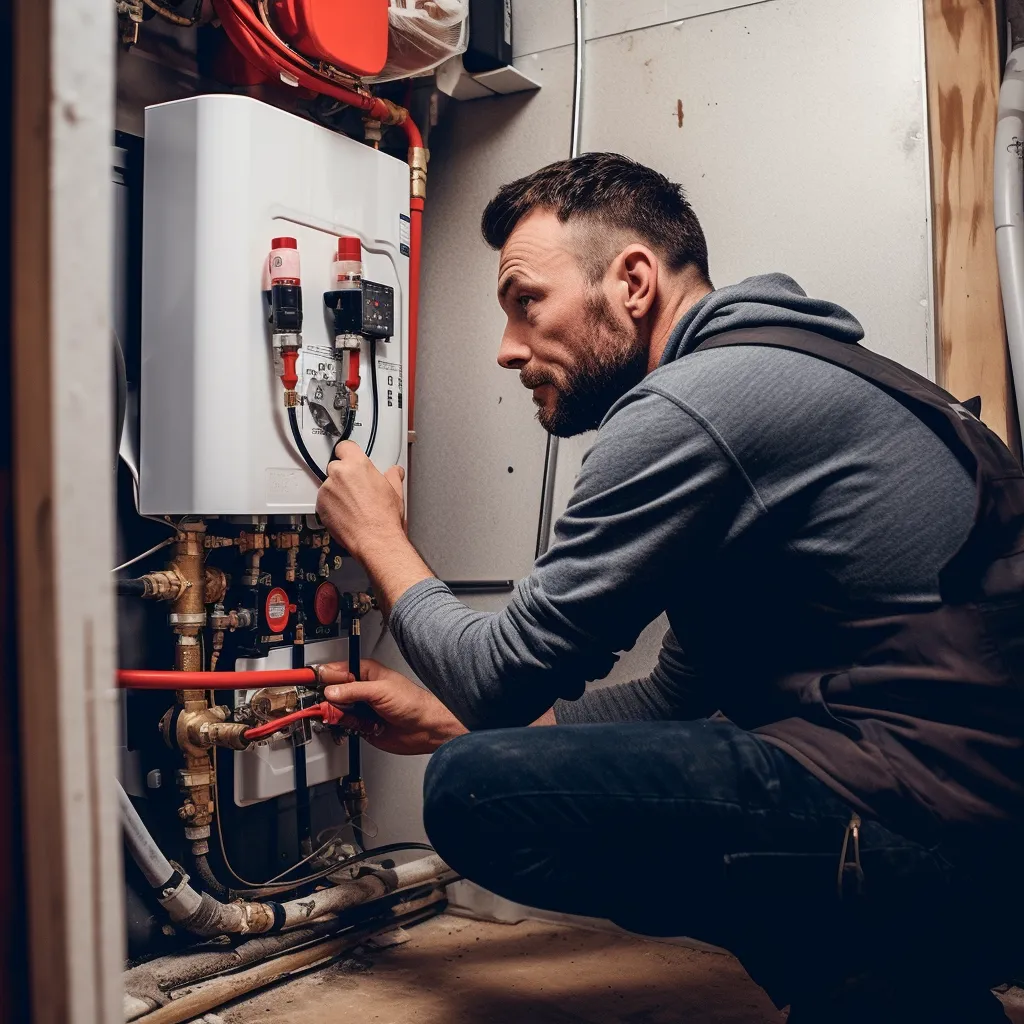
Consider your budget for a new hot water heater
Before proceeding with a water heater replacement, it's important to determine if it aligns with your budget. Take the time to assess your financial situation and evaluate what you can comfortably spend on a new water heater. Fortunately, there are various options available when it comes to water heater replacements in Murfreesboro. Whether you choose a traditional tank-based water heater or a more energy-efficient tankless model, there are choices to fit different budgetary constraints. It's worth noting that although tankless water heaters often come with a higher upfront cost, they can provide long-term savings through their improved energy efficiency. When considering a water heater replacement, it's also important to factor in installation costs. Hiring a professional plumber in Murfreesboro will ensure that your new water heater is correctly installed and functioning efficiently. While professional installation adds to the overall cost, it's an investment that can potentially save you from future issues and costly repairs. If you're unsure about the cost of a water heater replacement, it's recommended to consult with a reputable plumbing company. They can assess your specific needs, provide you with different options, and help you find a solution that aligns with both your budget and your hot water requirements.

Replacing a water heater is a significant decision
When it comes to replacing your water heater, it's crucial to make an informed decision. Choosing a new water heater involves considering factors like efficiency, age, and cost. If you have a water heater that's over a decade old or frequently requires repairs, it's a clear sign that an upgrade to a more efficient model is worth exploring. By doing so, not only can you enhance your water heater's performance, but you can also reduce your utility bills in the long run.
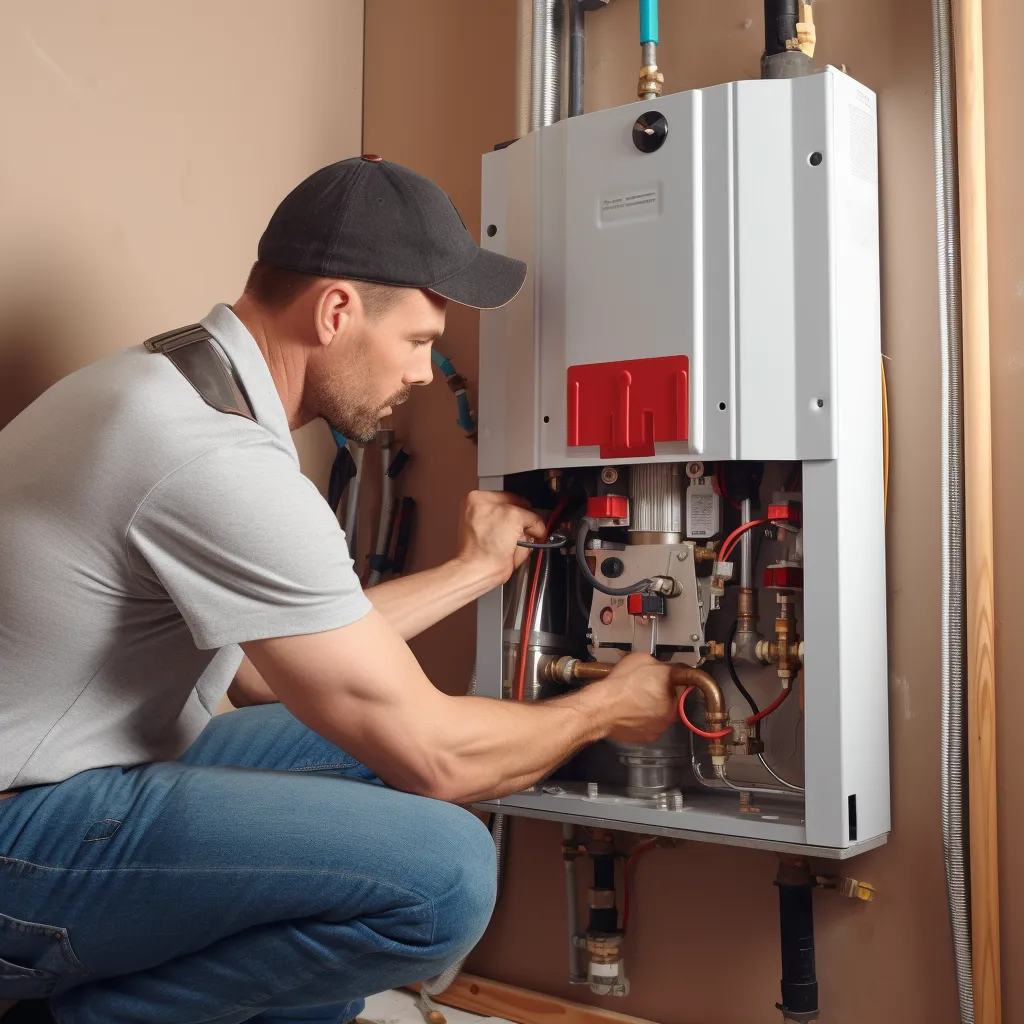
How to extend the lifespan of your water heater
To extend the lifespan of your water heater and optimize its performance, here are some valuable tips to follow:
Regular Inspections: Schedule periodic inspections by a professional plumber to assess the condition of your water heater. They can identify any potential issues or signs of damage early on and recommend necessary repairs or replacements.
Flushing the Tank: Sediments and minerals can accumulate in the water tank over time, affecting the heater's efficiency and performance. Flushing the tank annually helps remove these deposits and ensures the heater operates at its best.
Adjusting the Temperature: Lowering the water heater temperature to about 120 degrees Fahrenheit can provide several benefits. It reduces the risk of scalding and minimizes energy consumption, resulting in cost savings on your utility bills.
Insulating the Tank: Adding insulation to your water heater tank can help reduce heat loss and improve energy efficiency. An insulating blanket or jacket can be easily installed and provide substantial energy savings.
Checking Pressure Relief Valve: The pressure relief valve is a critical safety feature that releases excess pressure from the tank. Regularly check this valve to ensure it functions correctly and prevents dangerous pressure buildup.
Replacing Anode Rod: The anode rod is designed to prevent corrosion within the tank. Over time, this sacrificial rod may become depleted and should be replaced periodically. Doing so can prolong the lifespan of your water heater.
Professional Servicing: It's advisable to have your water heater professionally serviced at least once a year. Trained technicians can inspect the unit thoroughly, make necessary adjustments, and perform any required maintenance tasks.
Following these tips for water heater replacement in Murfreesboro will help keep your water heater functioning optimally and extend its lifespan. Remember, regular maintenance and prompt repairs are key to avoiding unexpected breakdowns and ensuring hot water availability when you need it.
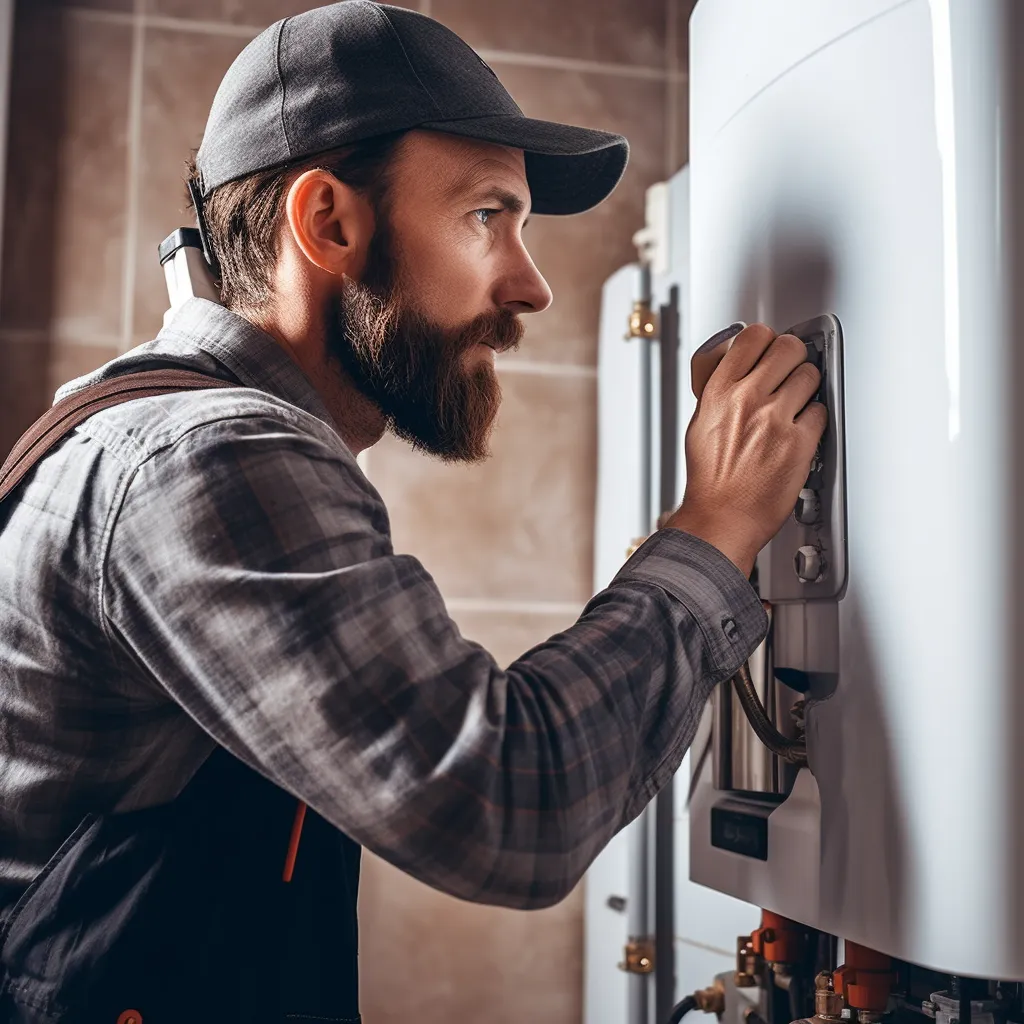
Address any malfunctions
When it comes to water heaters, malfunctions can be a real hassle. Whether your water heater is leaking, not producing enough hot water, or simply not working at all, addressing these malfunctions promptly is crucial to ensure a constant supply of hot water in your home. If you're experiencing any issues with your water heater, it may be time to consider a water heater upgrade. A professional plumber can help diagnose the problem and provide you with the best solution for your specific needs. By opting for a water heater replacement, you can enjoy improved efficiency, increased reliability, and peace of mind knowing that your hot water needs will be met for years to come.
How to know you need a new water heater
Is your water heater giving you trouble or showing signs of wear and tear? If so, it might be time to consider a water heater replacement. Ignoring these signs can lead to bigger issues down the line, such as leaks or a total breakdown. To avoid the inconvenience and potential damage, pay attention to the following signs that indicate it's time for a new water heater:
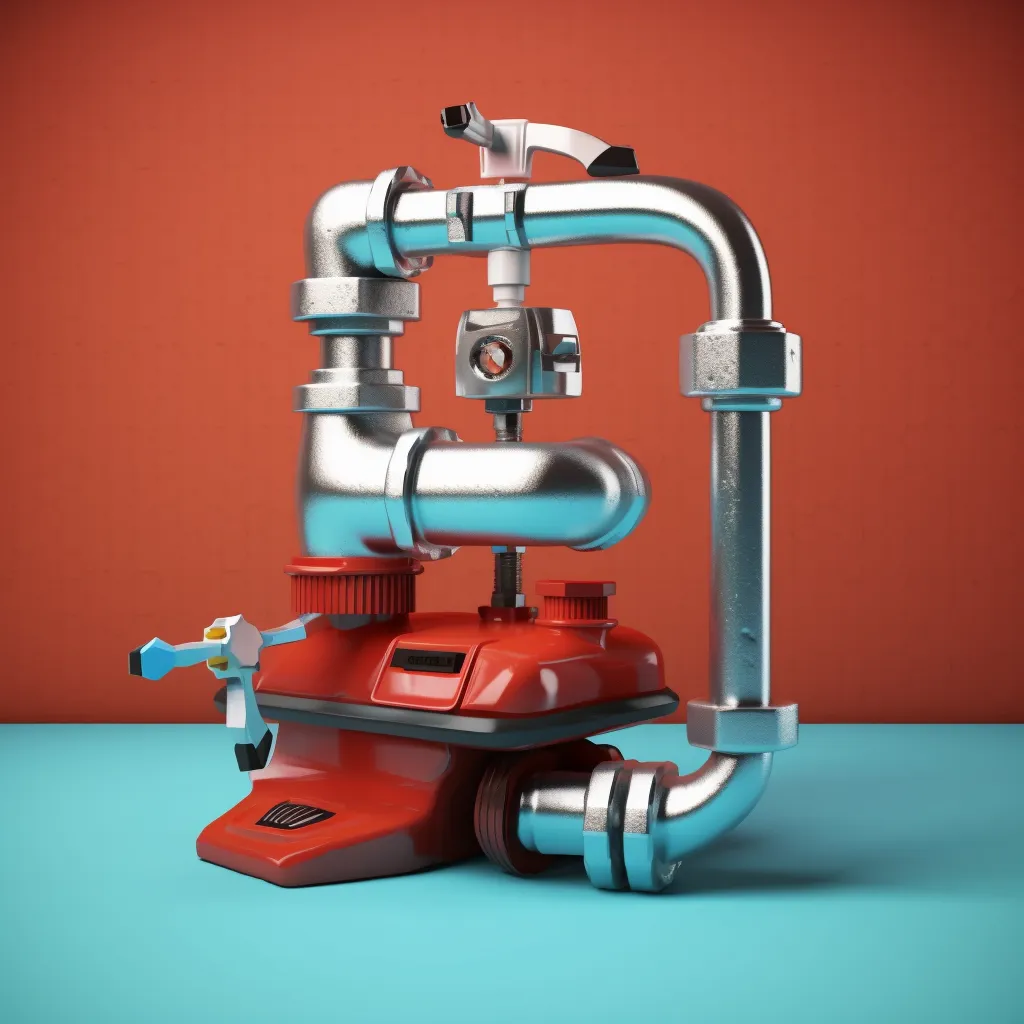
Age: The average lifespan of a water heater is around 8 to 12 years. If your water heater is approaching or exceeding this range, it's wise to think about replacing it before it stops working altogether. Older models become less efficient over time and may require frequent repairs.
Rusty or discolored water: If you notice rusty or discolored water when you turn on the hot water tap, it could be a sign that your water heater is deteriorating from the inside. Rust and sediment buildup can affect the quality and taste of your water, indicating the need for a replacement.
Strange noises: Over time, sediment can accumulate at the bottom of your water heater tank. This can cause the tank to make rumbling or popping noises during operation. These sounds are a clear indication that your water heater needs attention or replacement.
Leaks: Water pooling around your water heater is an obvious sign of a leak. Even small leaks can quickly turn into larger ones, causing significant damage to your home. If you notice any water leakage, it's crucial to address the issue promptly and consider getting a new water heater.
Inconsistent or insufficient hot water: Are you experiencing inconsistent hot water temperatures or running out of hot water more frequently? This could be due to a failing water heater. As water heaters age, they lose their efficiency, leading to inadequate heating capabilities.
Increased energy bills: A sudden surge in your energy bills without any other explanation could be attributed to an inefficient water heater. As a water heater ages, it requires more energy to heat water, resulting in higher energy costs. Replacing an old water heater with an energy-efficient model can help you save on your monthly utility bills.
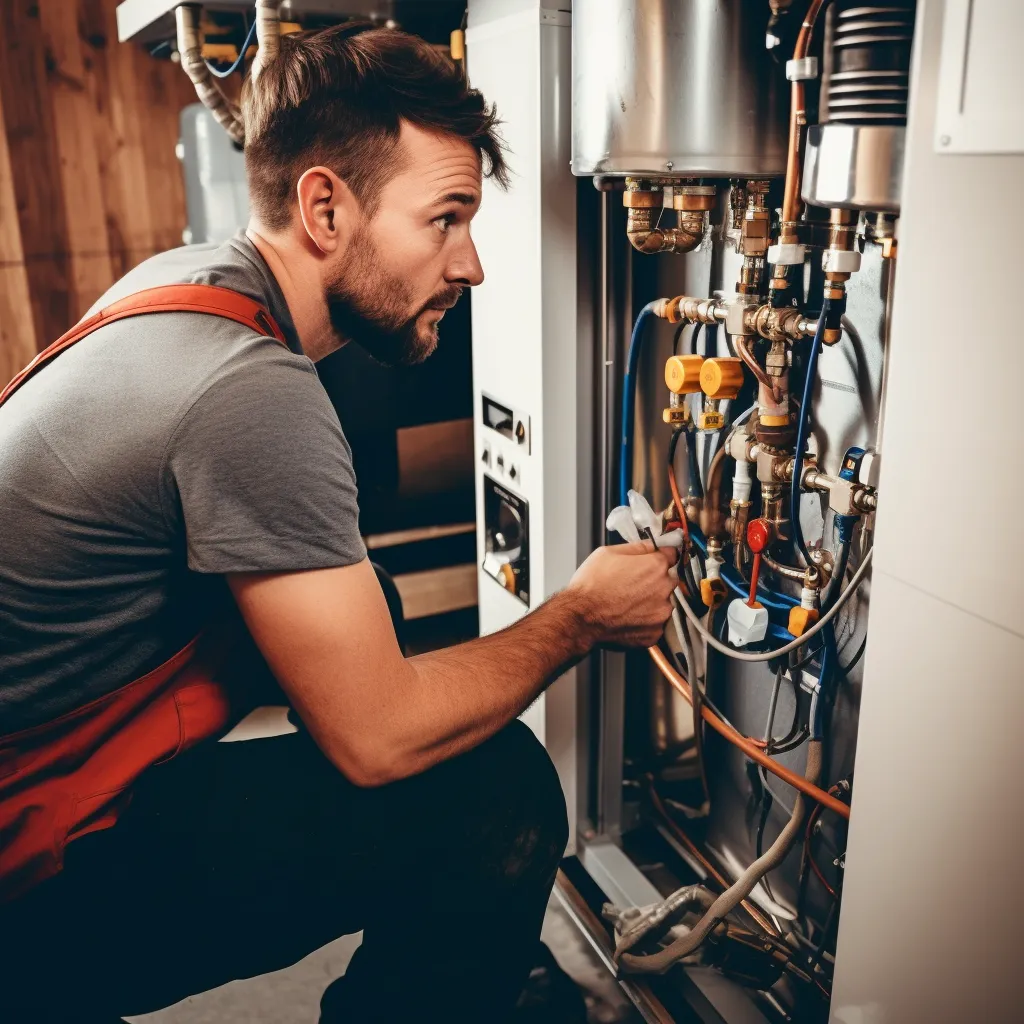
If you notice any of these signs, it's essential to contact a professional for a thorough inspection and advice on water heater replacement options. Addressing these issues promptly can save you from costly repairs, unexpected breakdowns, and potential water damage. When it comes to water heater replacement, make sure to choose a trusted and experienced plumbing professional to ensure a successful installation and long-lasting performance.
What does it cost to replace a water heater?
When considering the expense of replacing your water heater, there are various factors that influence the total cost. These factors comprise:
The type of water heater you opt for, whether it's a traditional tank-based heater or a tankless unit, will have an impact on the overall cost. Tankless units are generally more expensive upfront, but they can help save on energy costs in the long run due to their energy-efficient nature. On the other hand, traditional tank-based heaters are usually more affordable initially but may have higher operating costs.
Another factor to consider is the size or capacity of the water heater required to meet your household's hot water demands. Choosing the right size is essential to ensure an efficient and reliable supply of hot water. A water heater that is too small may not be able to keep up with the demand, resulting in insufficient hot water, while a unit that is too large can lead to unnecessary energy consumption and higher costs.
Energy efficiency is an important factor to consider. While energy-efficient water heaters may have a higher upfront cost, they can lead to long-term savings on energy bills.
There are certain installation requirements that can affect the overall cost. The complexity of the installation process is a key factor that determines the expenses involved. Accessibility, venting requirements, and any necessary plumbing modifications are all factors that can contribute to the overall installation expenses.
When it comes to a water heater upgrade, making the right choice is essential. Not only does this process involve a significant investment, but the costs can also vary based on different factors. The average cost for replacing a standard electric water heater typically ranges from $500 to $2,500. Meanwhile, tankless water heaters demand higher repair costs, usually falling between $1,000 and $3,500.
Common questions about replacing and installing a water heater
How often should a water heater be replaced?
On average, a water heater should be replaced every 8 to 12 years. However, the lifespan of a water heater can be influenced by factors such as maintenance, usage, and water quality.
What are the signs that indicate a water heater needs to be replaced?
Some common signs that indicate a water heater needs replacement include: leaking or pooling water around the unit, inconsistent water temperature, strange noises coming from the unit, rusty or discolored water, and old age (typically over 10 years old).
Can I replace my water heater myself?
While it is possible for some homeowners to replace a water heater themselves, it is generally recommended to hire a professional plumber. Water heater installation involves dealing with gas or electricity, as well as ensuring proper connections and venting, which requires expertise to ensure safety and efficiency.
How long does it take to replace a water heater?
The time it takes to replace a water heater can vary depending on the specific circumstances and the type of water heater being installed. On average, a professional plumber can typically replace a water heater within a few hours.
How much does it cost to replace a water heater?
The cost of replacing a water heater depends on various factors, including the type of water heater, size, and installation requirements. On average, homeowners can expect to pay anywhere between $500 to $1,500 for a new water heater installation, including the unit and labor costs.
Are there any energy-efficient options when replacing a water heater?
Yes, there are several energy-efficient options available when replacing a water heater. Tankless water heaters, heat pump water heaters, and solar water heaters are all considered more energy-efficient alternatives to traditional storage tank water heaters.
Is a permit required to replace a water heater?
In many areas, a permit is required to replace a water heater. This is to ensure that the installation is done safely and in compliance with local building codes. It is recommended to check with the local building department to determine if a permit is required before replacing a water heater.
Can I claim any rebates or incentives when replacing my water heater?
Depending on the location, homeowners may be eligible for rebates or incentives for upgrading to an energy-efficient water heater. It is advised to check with local utility companies or government agencies to determine if any rebates or incentives are available in your area.
Ways you can save money with water heater replacement
There are several ways you can save money on this essential home upgrade.
Consider energy-efficient options: When choosing a new water heater, opt for energy-efficient models. Look for units with a higher energy factor (EF) rating, as they are designed to consume less energy while operating. This can result in significant savings on your monthly energy bills over time.
Explore available rebates and incentives: Before making a purchase, research any rebates or incentives offered by your local utility company or the manufacturer. In some cases, you may be eligible for a rebate or discount for choosing an energy-efficient water heater. These programs can help offset the initial cost of the replacement.
Shop for the best deal: Take the time to compare prices from different suppliers and retailers in Murfreesboro. Look for sales, discounts, or promotions that may be available. Keep in mind that while it's important to find a cost-effective option, quality should not be compromised. Remember, you'll want a durable and reliable water heater that will last for years.
DIY vs. professional installation: While it may be tempting to attempt a DIY installation to save money on labor costs, it's important to consider your skill level and the complexity of the job. Improper installation can lead to costly repairs or even potential safety hazards. Unless you have the necessary expertise, it’s recommended to hire a professional for the installation. They will ensure that the unit is properly installed and functioning efficiently, reducing the likelihood of future issues.
Regular maintenance: After the installation, establish a regular maintenance routine to prolong the lifespan of your water heater. Flushing the tank annually to remove sediment and checking for any leaks or issues can help prevent major problems and extend its overall efficiency.
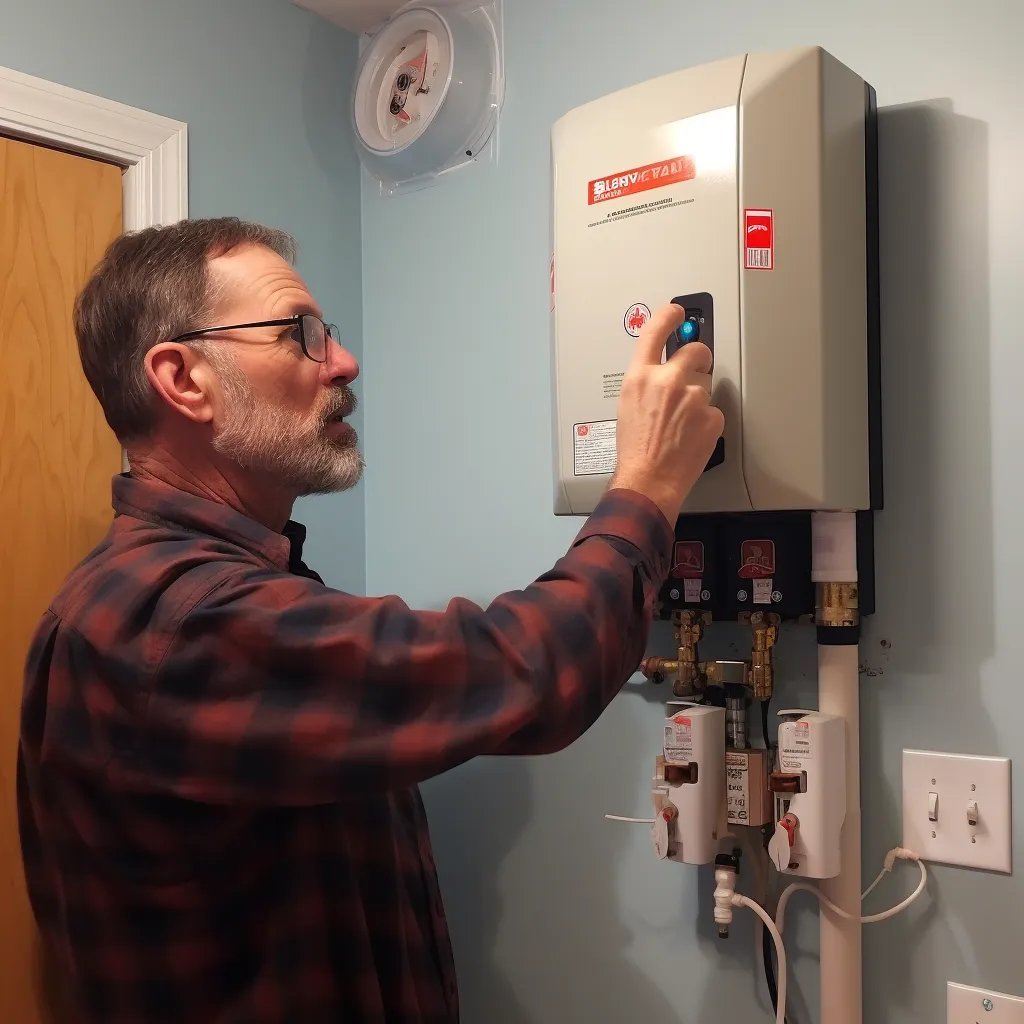
Why you should hire a professional vs DIY installation or repair
It's crucial to consider the benefits of hiring a professional rather than attempting a DIY installation. While it may seem tempting to save money and tackle the project yourself, there are several important factors to consider. First and foremost, professionals bring their expertise and experience to the table. They have undergone extensive training to understand the intricacies of water heater installation, ensuring that the process is done correctly and efficiently. With their in-depth knowledge, they can navigate through potential pitfalls and troubleshoot any issues that may arise during the installation. Additionally, professionals have access to the necessary tools and equipment required for a smooth water heater replacement. From the appropriate wrenches to ensure a secure connection, to the proper venting system installation, they come equipped with all the materials needed to complete the job accurately. By hiring a professional, you can have peace of mind knowing that the correct tools are being used to install your water heater. Another crucial aspect to consider is safety. Water heater installation involves working with electricity and gas lines, which can be dangerous if not handled properly. Professionals are well-versed in safety precautions and regulations, ensuring that all connections are secure and that there are no safety hazards. By hiring a professional, you reduce the risk of accidents and ensure the well-being of yourself and your home. Not only does hiring a professional minimize safety risks, but it also saves you time and effort. Installing a water heater can be a time-consuming task, especially if you don't have prior experience. By entrusting the job to a professional, you can focus on other important matters while they handle the installation process efficiently. Lastly, hiring a professional for water heater replacement can save you money in the long run. While it may seem cost-effective to take on the project yourself, any mistakes or faulty installations can lead to expensive repairs or replacements down the line. Professionals guarantee quality workmanship, reducing the likelihood of future issues and ultimately saving you money on potential repairs.
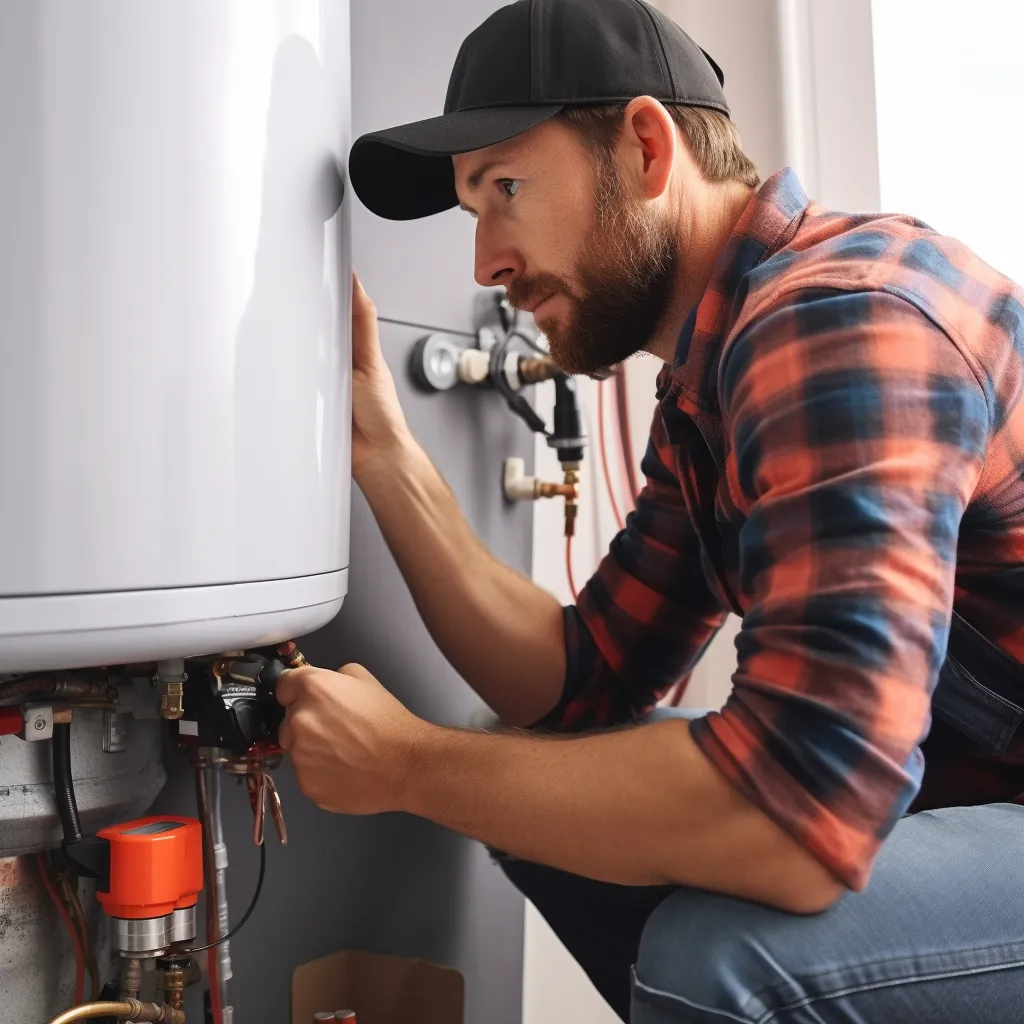
How to find a water heater professional
It's essential to find a reliable and experienced professional for the installation. Here are some valuable tips to help you in your search:

Research local providers: Start by researching local water heater professionals in Murfreesboro. Look for companies that specialize in water heater installation and have a good reputation in the area. Online directories and customer reviews can be helpful in finding reliable providers.
Check for proper licensing and certifications: When hiring a water heater professional, ensure that they are adequately licensed and certified. This ensures that they have the necessary training and expertise to handle the installation safely and efficiently.
Ask for recommendations: Seek recommendations from friends, family, or neighbors who have recently had their water heater replaced. Their personal experiences can give you valuable insight into finding a reputable professional for the job.
Request multiple quotes: It's always a good idea to get quotes from multiple water heater professionals. This way, you can compare prices and determine who offers the best value for the services they provide. Remember, the cheapest option may not always be the best, so consider the overall package – including reputation and customer service.
Inquire about warranties: When discussing your water heater replacement, ask about any warranties offered by the professional. A reliable provider should offer warranties on both parts and labor. This will help give you peace of mind in case any issues arise after the installation.
Check for insurance: It's crucial to hire a water heater professional who carries proper liability insurance. This protects you in case any accidents or damages occur during the installation process.
Contact Us
GET IN FULL TOUCH
PHONE: 615-671-4918
EMAIL:
steven@waterheatermurfreesboro.com
Rutherford Plumbing Heating & Cooling
Murfreesboro, TN 37128
